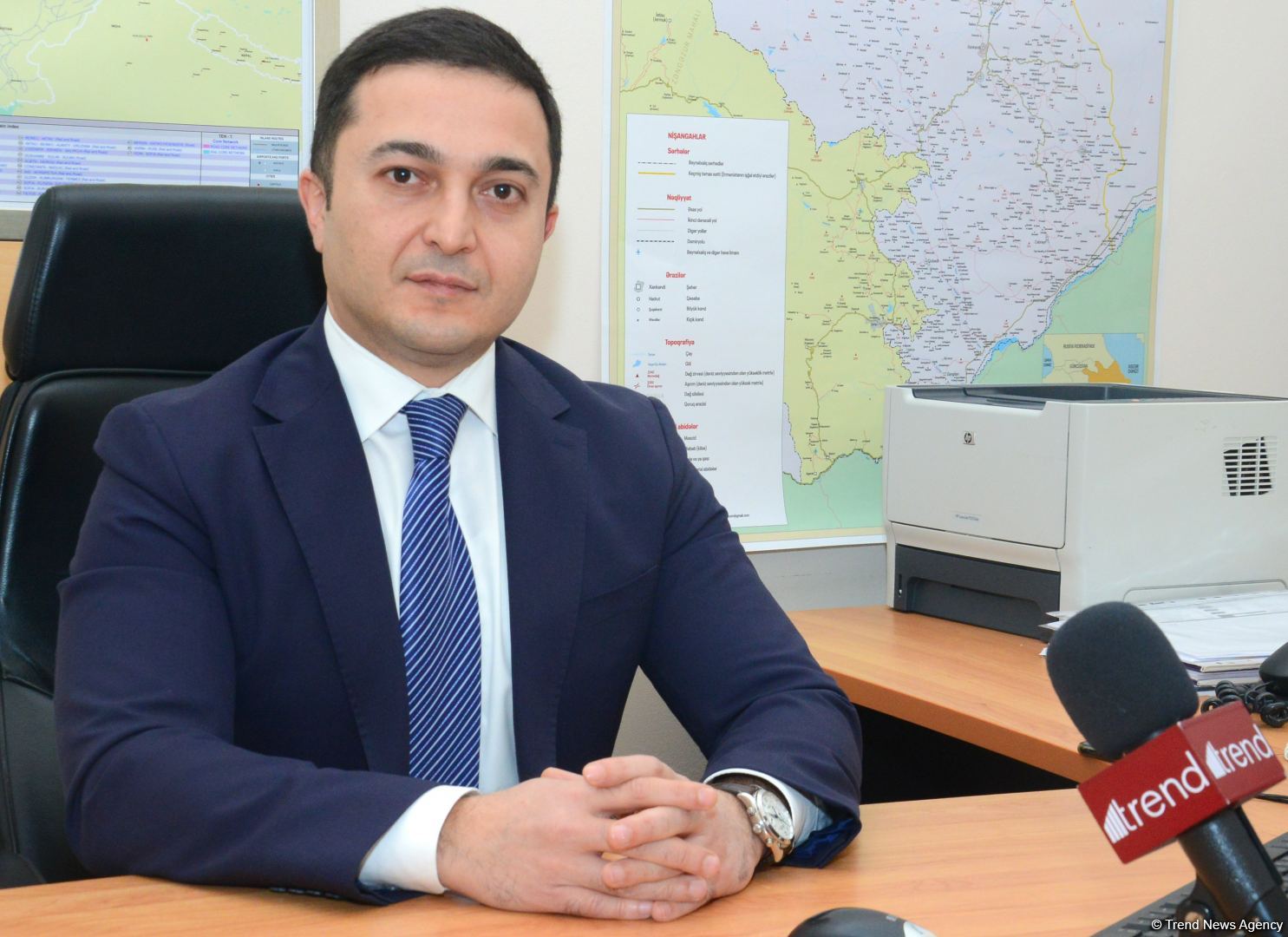[ad_1]

BAKU, Azerbaijan, Mar. 1
By Sadraddin Aghjayev – Trend:
Permanent Representative (National Secretary) of the PS IGC TRACECA, Rufat Bayramov, has given an interview to Trend regarding a number of current and planned projects of the organization.
The issue of signing a new agreement to obtain a TRACECA single transit permit, within which a special working group has been created, is on today’s agenda, Bayramov said,
“We’re already discussing the possibility of applying a single transit agreement between the TRACECA countries: this document will actually save time and certain costs for the transportation of goods, and its implementation in TRACECA’s work will accelerate the digitalization of information exchange between countries,” he added.
The national secretary also noted that there are certain limits for cargo transportation, which are regulated by bilateral agreements on their transit.
“We’re now trying to promote this project to get rid of unnecessary documentation between countries, which will ultimately speed up the time it takes to cross the borders between TRACECA countries,” Bayramov added.
“This project provides for the creation of a special ecosystem (platform) within which customs services, freight carriers, and other contractors will be able to exchange reliable information on goods in transit through the territories of the TRACECA countries,” the permanent representative said.
He further noted that saving travel time will increase the attractiveness of the route and provide opportunities for expanding the geography of TRACECA.
“Currently, there is competition in global supply chains, both between land and sea routes and between the various land corridors connecting Europe with Asia. Accordingly, the presence of additional advantages for one or another corridor increases its attractiveness. Implementation of all these measures will ensure expanding TRACECA cargo turnover in the direction of China – Europe, Southern Europe – Central Asia and in several other directions,” Bayramov added.
The TRACECA representative also informed about the implementation of several projects by Azerbaijan in the bilateral order within the e-TIR.
“The issue of pilot transportation between the four TRACECA countries (Azerbaijan, Georgia, Kazakhstan, and Uzbekistan) is also on the agenda. To date, there has been no such precedent between the countries of the region,” said the TRACECA national secretary.
In addition to all this, the project e-CMR (electronic consignment note) was discussed, the agreement on which is under consideration, that is, Azerbaijan’s joining this project.
“The procedure of coordination between state bodies is underway, the results of which will soon allow us to talk about the further development of the project,” Bayramov stressed.
Speaking about the development of transport corridors, he noted that one of the main activities of the transport sector is the TRACECA corridor.
“There are many issues here that need to be coordinated in the context of transshipment of goods across the Caspian Sea. This front is wider since it includes several modalities, that is, land and water transport, port infrastructures and, accordingly, the interaction of all these segments is the most important and interesting to study,” Bayramov said.
“If we are talking about container transportation, then it is necessary to control every stage of transportation, starting from a truck or a railway operator, its transshipment in the port and further movement,” he added.
In this regard, joint work is underway with international financial institutions, including with consultants from the Asian Development Bank (ADB) and the World Bank (WB), Bayramov noted.
“Within the framework of this cooperation, a project is being worked out on the complete transition of TRACECA documentation to an electronic format and the creation of a single multimodal document. Concerning the wide geography and organization of the working process of the participating countries, the main task is to develop a common document that will take into account the parameters provided for in the application of different systems,” he said.
TRACECA ‘s another activities under a unified transit agreement is the introduction of digital technologies, within which the participating countries are considering the possibilities of using certain technologies, based on which a product and plans for the implementation of tracking systems for the movement of goods (vehicle downtime) will be developed in real-time.
[ad_2]
Source link